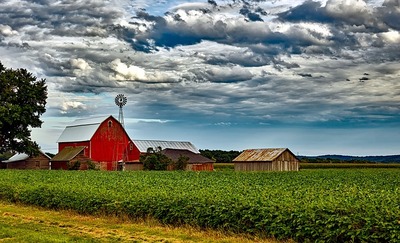Ongoing Freeze on Federal Funding for Overseas Food Aid Creates Uncertainty for Wisconsin Farmers
Wednesday, February 12th, 2025 -- 8:01 AM

(Hope Kirwan, Wisconsin Public Radio) The ongoing freeze on federal funding for overseas food aid and on-farm conservation projects has created uncertainty for Wisconsin farmers and ag groups preparing for this year’s growing season.
According to Hope Kirwan with Wisconsin Public Radio, President Donald Trump halted food purchases for foreign aid through the U.S. Agency for International Development, or USAID, in January.
About 41 percent of the food aid provided by USAID is purchased from American farmers, according to The Washington Post. The president also halted funds for “climate smart” agriculture projects created through the 2022 Inflation Reduction Act.
That includes expanded funding for farmer cost-sharing contracts and grants through agencies under the U.S. Department of Agriculture. Wisconsin ag leaders say it’s difficult to understand how much of the frozen funding was meant for Wisconsin farms.
Soybeans is one of the major commodities purchased by USAID, according to agricultural economist Paul Mitchell at the University of Wisconsin-Madison.
But Mitchell said foreign food aid also includes shelf-stable foods that may be produced by Wisconsin farms and food processors. With the agency’s website largely down, he said it’s almost impossible to determine what products could be affected.
“It’s going to have local effects,” Mitchell said. “How much of that is dried red kidney beans? I don’t know. How much is dried cranberries? I don’t know. How much is dehydrated potatoes from the state? It’s difficult to tell.”
He said companies with USAID contracts will be the first to feel the impact of the funding pause, and it will take time to see the ripple effects of halted commodity purchases on commodity prices.
That could affect planting and crop insurance decisions for Wisconsin farmers in the coming months. “Planting time, say April, May, June, there will be a lot of watching the markets and making adjustments if the markets are showing big drops or big increases in prices,” Mitchell said.
“That will be the big one, is waiting until the last minute to really adjust.”
Feel free to contact us with questions and/or comments.




